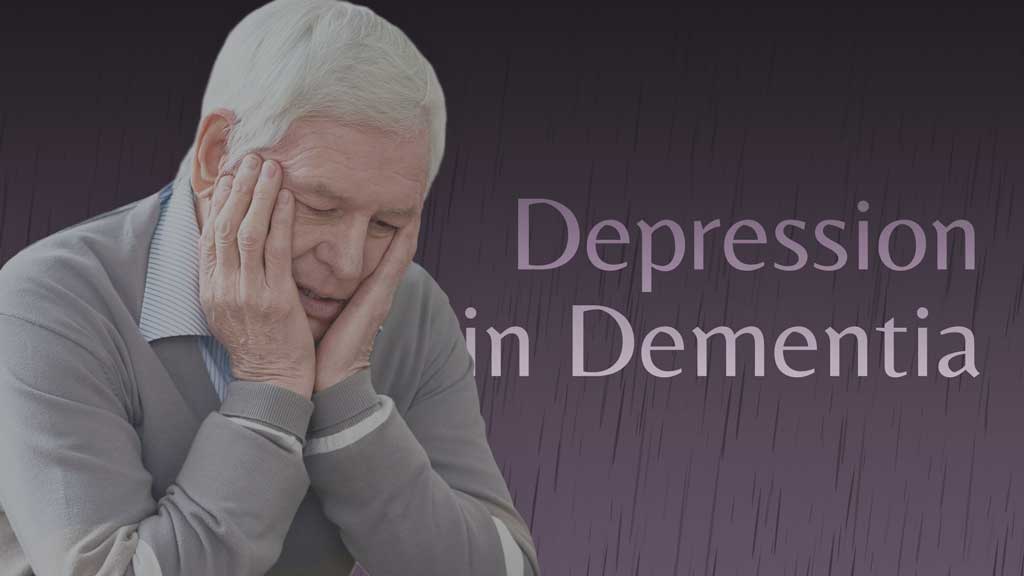Content warning: Please be aware that this Article contains references to self-harm and suicide.
Depression is estimated to be three to four times more common in older adults with dementia than those without (Dementia Australia 2020).
However, while depression co-occurs in about 20 to 30% of people with dementia, it can be difficult to determine whether an older adult actually has both depression and dementia, has depression only or has dementia only due to similarities between the two conditions (Dementia Australia 2020).
Being able to identify and distinguish between depression and dementia correctly is crucial in ensuring those with depression are able to receive the treatment and support they require, those with dementia do not have unrealistic expectations of improvement placed upon them, and those with both undergo appropriate treatment (Dementia Australia 2020).
Causes of Depression in Dementia
Depression might develop in people with dementia due to factors such as:
- Decreased confidence and self-esteem due to loss of functional capacity
- Loss of independence and increased reliance on others
- Being unable to participate in activities or perform daily tasks
- Anxiety and agitation
- Confusion and impaired memory
- Changes to the brain
- Untreated pain.
(Dementia Australia 2020)
Why Are Depression and Dementia Often Confused?
There are a variety of reasons why it can be difficult to determine whether an older adult has depression, dementia or both. These include:
- Certain symptoms of depression are similar to those of dementia, for example:
- Impaired cognition and concentration
- Impaired memory
- Impaired motivation and initiative
- Changes in mood
- Social withdrawal
- Lack of interest in the self or other people
- The belief that it’s ‘normal’ for older adults, especially those with dementia, to be depressed
- The older adult may be unable to describe symptoms of depression due to dementia-related communication difficulties
- The older adult’s personality, e.g., someone who has always had a negative and depressive cognitive style.
(Dementia Australia 2020; Kitching 2015)
Recognising Depression in Dementia
Despite the potential for confusion, there are some significant differences between depression and dementia that can aid in diagnosis. For example:
- Depression typically develops more quickly than dementia (over weeks or months).
- Issues related to speech and awareness of time and place are common in dementia but uncommon in depression.
- Those with depression may state they have forgotten something but will remember when prompted. On the other hand, those with dementia are unlikely to remember and may instead hide their memory loss.
- Impaired cognition and memory in depression are often caused by poor concentration and will get better with treatment or an improvement in the condition. This will not occur in dementia.
(Alzheimer's Society 2024)

What is the Cornell Scale for Depression in Dementia?
The Cornell Scale for Depression in Dementia (CSDD) is a screening tool specifically intended to identify the signs of depression in people with dementia (DSA 2024).
The CSDD takes into account non-verbal symptoms of potential depression, including observations and physical signs that a person with cognitive impairment may be unable to vocalise (Heerema & Patel 2023).
The CSDD should be performed by a caregiver who has regular contact with the older adult (DSA 2024).
The assessment needs to be conducted by two groups of people:
- Someone who has regular contact with the person, such as a caregiver
- Members from the person’s care team, such as nursing staff or their general practitioner.
(DSA 2024)
The CSDD measures 19 items over 5 categories of assessment:
- Mood-related signs
- Behavioural disturbance
- Physical signs
- Changes in daily/nightly mood and behaviours
- Ideational disturbance.
(DSA 2024)
Each of these 19 items should be assessed for severity and assigned one of the following scores:
- 0 = Absent
- 1 = Mild or intermittent
- 2 = Severe.
(DSA 2024)
Before undertaking the CSDD, remember that symptoms caused by physical disability or illness should not be used in the assessment, as they are not related to depression (DSA 2024).
Mood-Related Signs
| 1. Anxiety (anxious expression, ruminations, worrying) |
|
| 2. Sadness (sad expression, sad voice, tearfulness) |
|
| 3. Lack of reactivity to pleasant events (does not cheer up when offered pleasant activities) |
|
| 4. Irritability (easily annoyed, short-tempered) |
|
(Adapted from DSA 2024)
Behavioural Disturbance
| 5. Agitation (restlessness, handwringing, hairpulling) |
|
| 6. Slowness (slow movements, slow speech, slow reactions) |
|
| 7. Multiple physical complaints (complaints about physical health more than is reasonable) |
|
| 8. Loss of interest (less involved in usual activities) |
Remember to only score the older adult for this item if the loss of interest occurred acutely and/or has lasted for under one month. Assign a rating of 0 for this item if:
|
(Adapted from DSA 2024)
Physical Signs

| 9. Appetite loss (eating less than usual) |
|
|
| 10. Weight loss (decrease in weight) |
|
Score 2 if they have lost more than 2.5 kg over the past month. |
| 11. Lack of energy (fatigues easily, unable to sustain activities) |
|
This item should be scored according to the older adult’s energy over the past week. Therefore, do not score this item if the fatigue has been occurring for longer than one month and has not worsened. |
(Adapted from DSA 2024)
Changes in Daily/Nightly Mood and Behaviours
| 12. Changes in mood (mood changes as the day progresses, with symptoms worse in the morning) |
|
In order for this item to be scored 1 or 2, the older adult must feel consistently worse in the mornings than in the evenings. |
| 13. Difficulty falling asleep (later than usual for this individual) |
|
|
| 14. Multiple awakenings during sleep (wakes up more than usual for this individual) |
|
|
| 15. Early morning awakenings (earlier than usual for this individual) |
|
|
(Adapted from DSA 2024)
Ideational Disturbance

| 16. Suicide (feels life is not worth living, has suicidal wishes) Note: If suicide is suspected, this should be escalated immediately to the rest of the care team |
|
Note: History of suicide attempts in an older adult who has no current passive or active suicidal ideations should be scored 0. |
| 17. Poor self-esteem (self-blame, poor self-esteem, feelings of failure) |
|
|
| 18. Pessimism (anticipation of the worst) |
|
|
| 19. Depressing delusions (delusions of poverty, illness, or loss) |
|
(Adapted from DSA 2024)
Final Score
Once all 19 items of the CSDD have been assessed, add the older adult’s scores for each item together:
| Total Score | Meaning |
|---|---|
| > 18 | Definite major depression |
| > 10 | Probable major depression |
| > 6 | Absence of significant depressive symptoms |
(Adapted from DSA 2021)
Note: Remember that the CSDD is a screening tool, not a diagnostic tool. Therefore, further investigations might be required.
Test Your Knowledge
Question 1 of 3
Is an impaired awareness of time and place more likely to occur in dementia or depression?
Topics
References
- Alzheimer's Society 2024, Depression and Dementia, Alzheimer's Society, viewed 27 February 2024, https://www.alzheimers.org.uk/about-dementia/symptoms-and-diagnosis/depression-dementia
- Dementia Australia 2020, Depression and Dementia, Dementia Australia, viewed 27 February 2024, https://www.dementia.org.au/sites/default/files/helpsheets/Helpsheet-DementiaQandA15-DepressionAndDementia_english.pdf
- Dementia Support Australia 2024, Guide to Using the Cornell Scale for Depression in Dementia, DSA, viewed 27 February 2024, https://www.dementia.com.au/resource-hub/guide-to-using-the-cornell-scale-for-depression-in-dementia
- Heerema, E & Patel, S 2023, ‘Is the Cornell Scale for Depression in Dementia Accurate?’, Verywell Health, 12 January, viewed 27 February 2024, https://www.verywellhealth.com/the-cornell-scale-for-depression-in-dementia-98620
- Kitching, D 2015, ‘Depression in Dementia’, Australian Prescriber, vol. 38, no. 6, viewed 27 February 2024, https://www.nps.org.au/australian-prescriber/articles/depression-in-dementia
 New
New 
